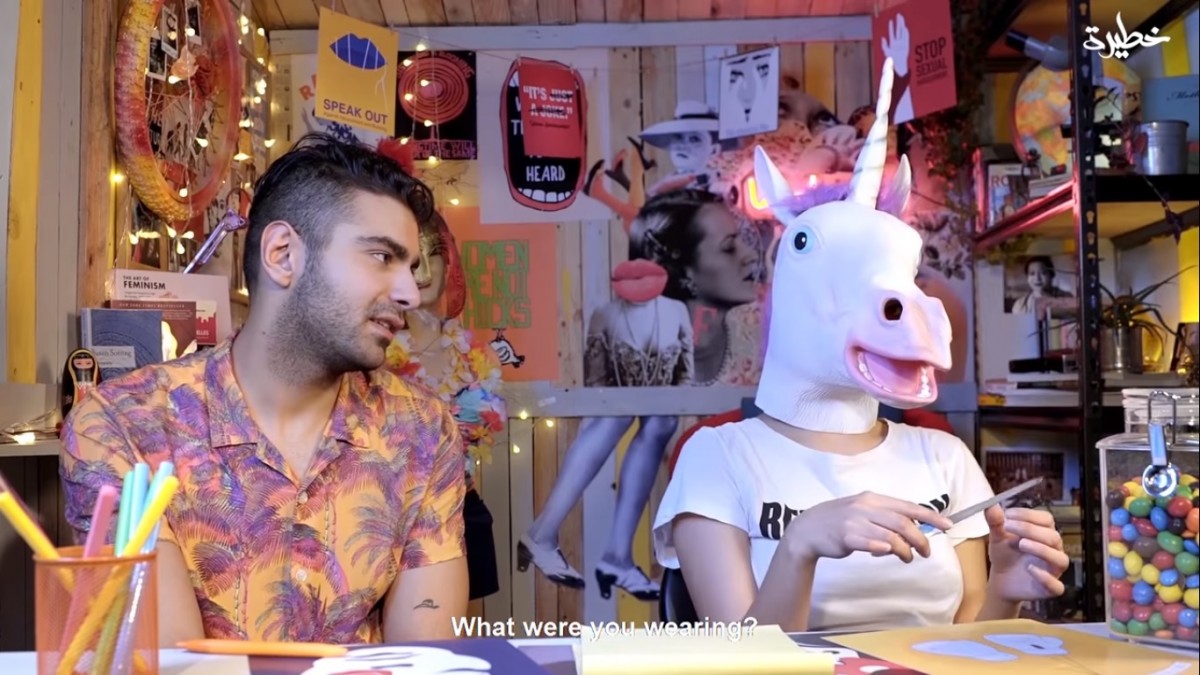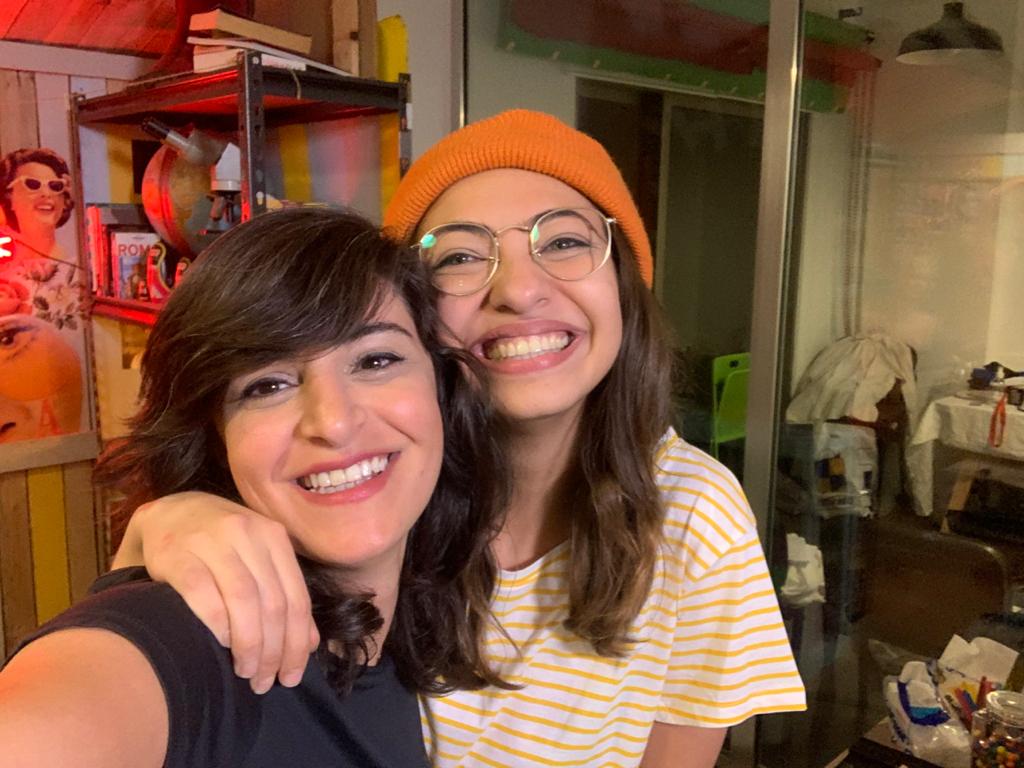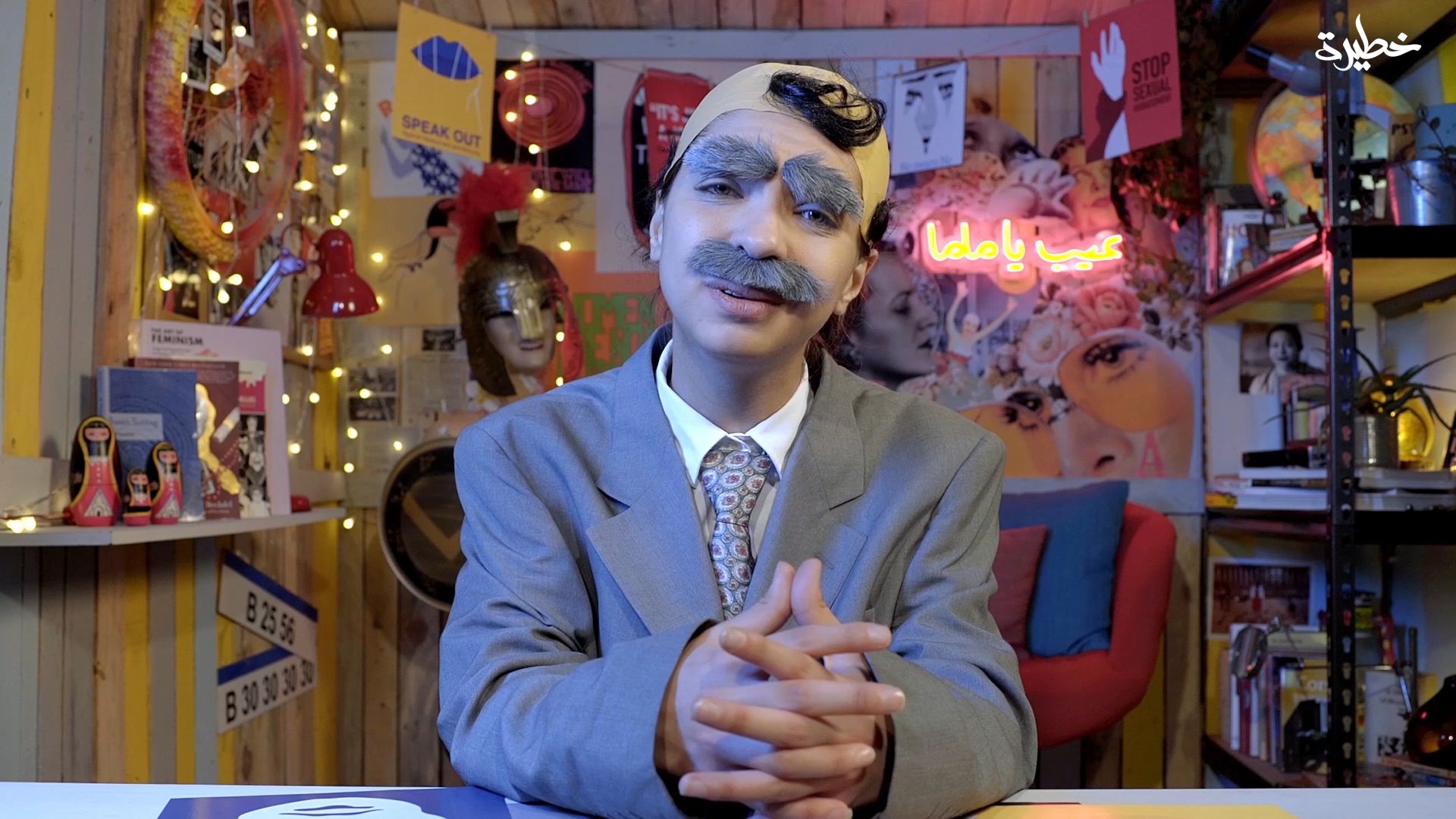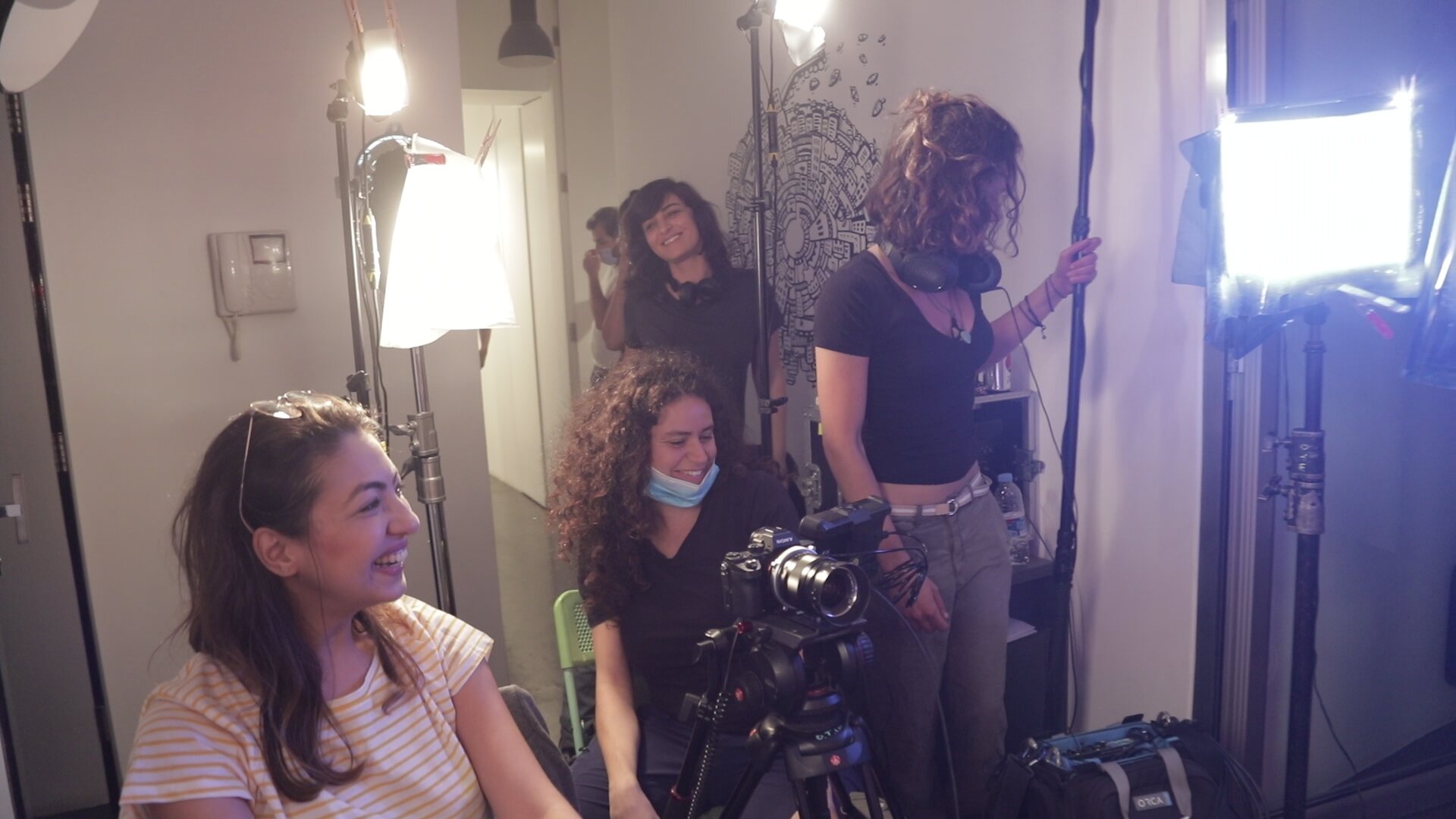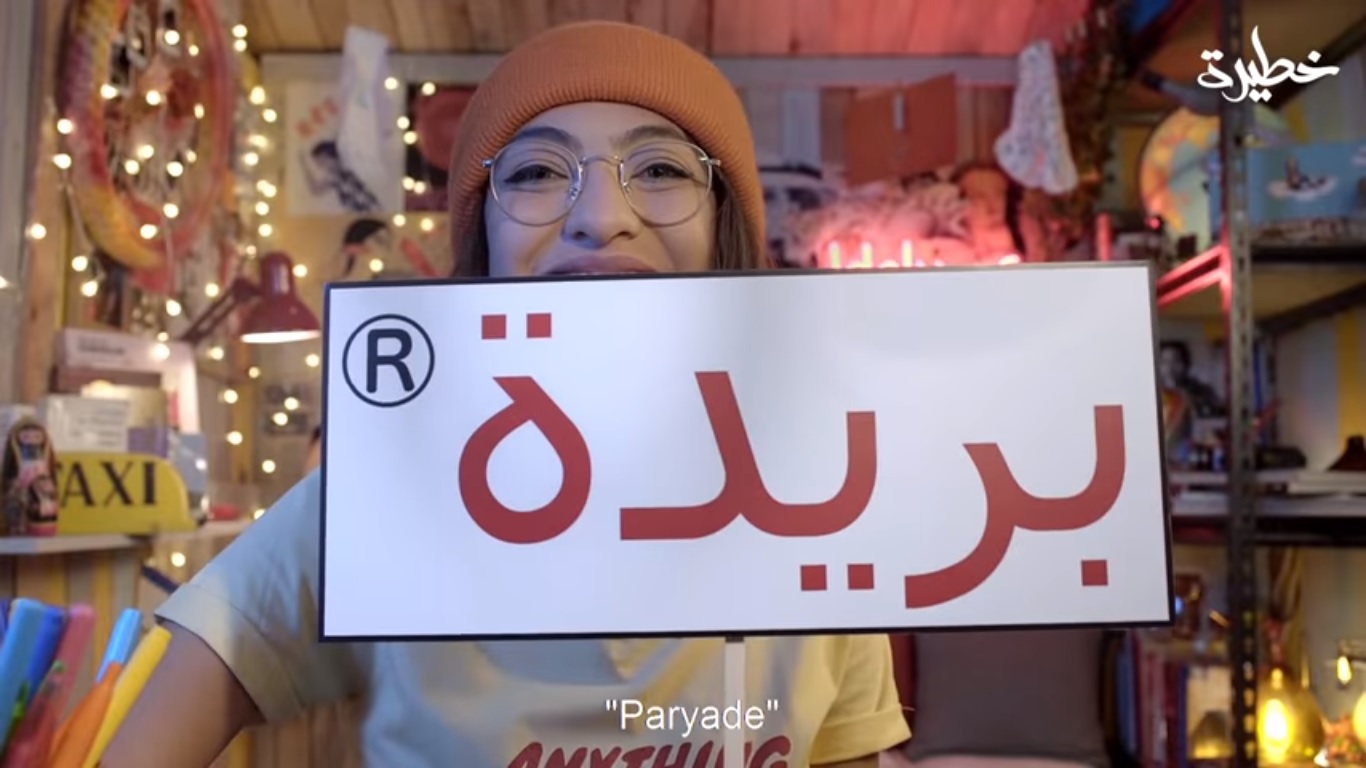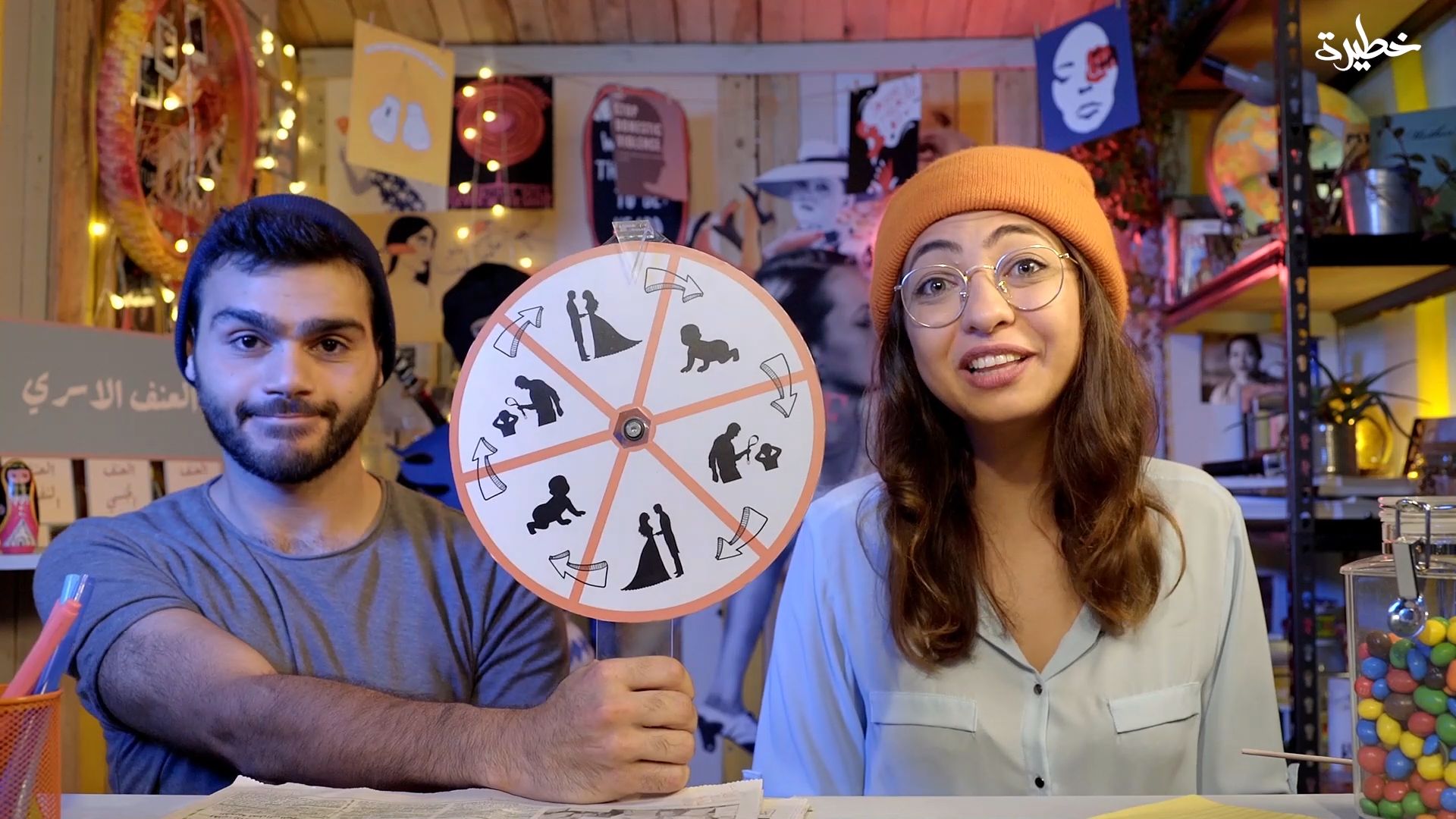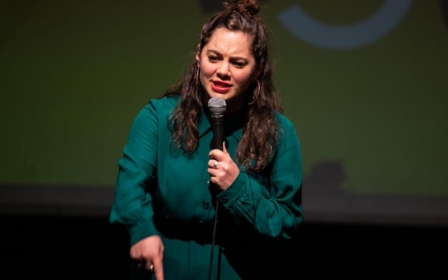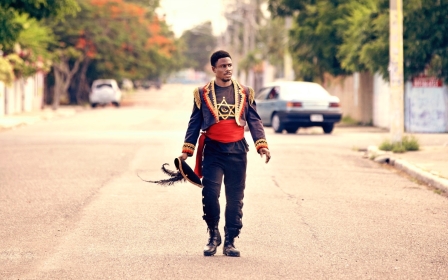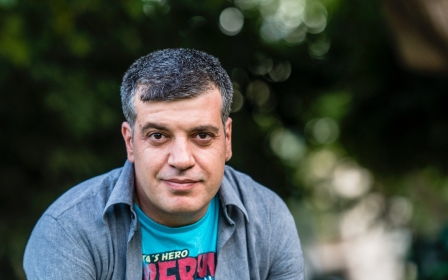'We expected more backlash': Inside a new feminist platform that dares to be funny
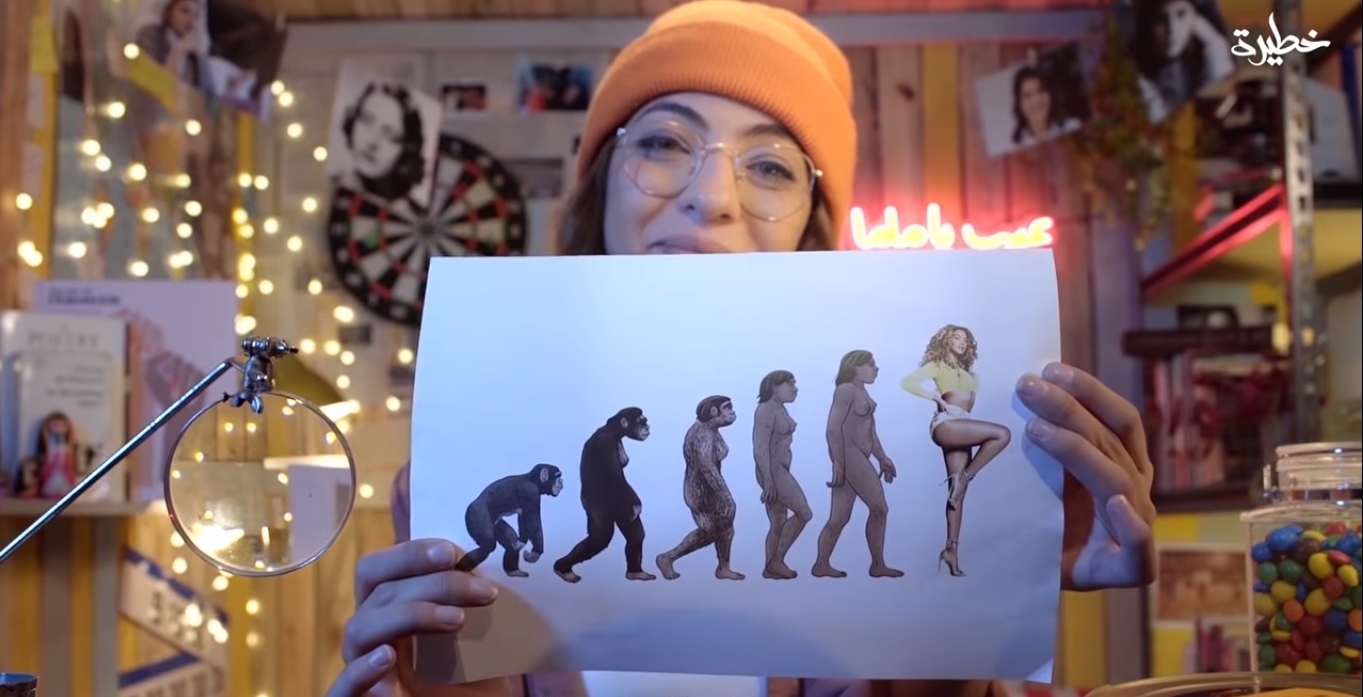
Surrounded by books on feminism and portraits of women’s rights activists, Maria Elayan, the star of a new web-video series, holds up an illustration of human evolution to the camera, where Beyonce represents the most evolved form of the homo sapiens.
“There is not even one image that shows the evolution of humans starting from a female. So I decided to make my own,” she explains in the video that has been watched over 1 million times on Facebook.
Outspoken and unapologetic, the character Elayan is playing, also named Maria, is here to show that she is one of a growing number of women representing their own image and forging their own paths.
“I know you won’t believe it but they found out women have been on earth the same amount of time as men have. So why do most men act as if this planet is theirs and women are here as guests?” she asks in the first episode, The Value of Women, with her trademark sarcastic smile. “Why?”
New MEE newsletter: Jerusalem Dispatch
Sign up to get the latest insights and analysis on Israel-Palestine, alongside Turkey Unpacked and other MEE newsletters
This question is the first of many posed by Elayan, a Palestinian-Jordanian actress and content creator. Her on-screen namesake is there to debunk gender stereotypes and expose the patriarchy in a series of 10 episodes called Smi’touha
'We wanted to create a safe space for women to be able to say what they want to say'
- Khateera founder, Amanda Abou Abdallah
The series is published by a new feminist initiative founded in March called Khateera (the name in Arabic being the feminine derivative of the word “dangerous”), and presents itself as a platform for every woman who “takes her place in this world without asking for permission”.
In addition to Smi’touha Minni, Khateera publishes articles from contributors across the Middle East and North Africa tackling subjects like harassment, discrimination and gender stereotypes - from the struggles of black women in Tunisia, to the presence of women in protests in Lebanon, to how your mom could have been a millionaire (if household chores were paid).
“We wanted to create a safe space for women to be able to say what they want to say,” says Khateera’s founder Amanda Abou Abdallah, who
What were you wearing?
Using humour and sarcasm to discuss a wide range of often sensitive topics, from women’s health, menstruation, to access to the labour market, Smi’touha Minni aims to expose the prejudice, bias and stereotypes that continue to prevent women from being treated as equal.
“What was she doing, going to the shop alone at five pm?” asks an old, reproachful woman - also played by Elayan, this time donning a white wig and a black hijab - in an episode about harassment.
“You should have seen what she was wearing,” she continues, disapprovingly, one hand clutching her handbag to her chest and the other gripping a cup of coffee, before going on to complain about the coffee.
This scene is then followed by a sequence in which Maria changes her outfit every time the man sitting next to her asks her: “What were you wearing?”
'You wear the hijab, they tell you your hijab isn’t right. You wear the niqab, they say why did you go out in the first place?'
- 'Maria', star of Smi'touha Minni
She goes through a dozen costume changes, including one with a blue wig, then another where she’s dressed up as a witch then a clown and even a ghost. Whether it’s a chef’s uniform or a unicorn head, she keeps hearing the same question.
“If you’re wearing short sleeves, they tell you to be modest. If you wear long sleeves, they tell you wear another layer,” Maria complains to the camera.
“You wear the hijab, they tell you your hijab isn’t right. You wear the niqab they say, why did you go out in the first place.”
On-screen, Maria is sassy and witty. Her creators made her wear glasses and play video games, placing her in a room full of books and a microscope to present a different kind of role model.
Although the show’s protagonist is played by Elayan, the character is inspired by Abou Abdallah’s own experience.
“We wanted to create a role model who is this geeky character, who is very funny but also very cynical,” says Abou Abdallah, who wrote the show’s script together with Elayan.
“Growing up I was this kind of geek,” says Abou Abdallah, someone who like Smi’touha Minni’s protagonist was interested in books, research and science, but didn’t see herself represented in Arabic media.
“Media is still a male-dominated field,” adds Elayan. “You don’t see a lot of feminist content created by women. So we wanted to make this kind of content more available in Arabic.”
And the response has been staggering. According to Abou Abdallah, the show, with its tiny team of just a handful of Lebanese and Palestinian-Jordanian members based in Beirut, has been watched by more than 10 million people from all over the region.
In addition to the main character, Maria, Elayan also plays more than a dozen other archetypal characters in the videos, ranging from the conservative older woman who could be anyone’s aunt, to the patronising
“A woman’s paradise is her home,” says a moustachioed Elayan as she wiggles her bushy eyebrows in an episode about
“All the characters are relatable,” says Elayan, “they are characters we have in our families, in our societies, whether we’ve encountered them or not, we know they exist.”
Countering the narrative
In the videos, Maria often bombards viewers with statistics that put a spotlight on gender inequalities. For Abou Abdallah, it was important to ensure the facts being quoted stand up to scrutiny, supported by solid research and strong arguments.
The data used in the videos was collected from academic studies and UN reports by two researchers in the team, Nour Nasr and Jana Ismail. Then it was up to Abou Abdallah and Elayan to turn the research into a fun and engaging show.
“
In another episode about women’s health, Maria says that a whole range of medical experiments around the world are still conducted only on men. “Imagine that in the 60s, they were experimenting with hormonal treatments for heart attacks in menopausal women. They conducted experiments on 8,341 men… and zero women,” she says.
It was working on this episode, exposing the gender bias in medicine, that made Elayan realise that women’s complaints were often belittled by doctors, confirming research findings on sexism in clinical pain management around the world.
'We don’t want women to settle for the first answer'
- Maria Elayan, Smi'touha Minni actress
“I realised this is part of a pattern. So the questions I started asking the doctor changed,” she says. “But this is what we’re aiming for - we don’t want women to settle for the first answer.”
As well as inviting viewers to question their own assumptions, the show presents itself as a quotable source, with each episode ending with Maria delivering the tagline: “If they ask you where you heard it, tell them you heard it from me.”
For some viewers, however, hearing it from her isn’t enough. On the comments sections of their social media posts, many viewers questioned the information in the videos and accused Elayan of making it all up. Some refused to accept the numbers and arguments presented, even after the links to the studies quoted in the show were made available online.
“I don’t think they would question it as much if it was a man presenting this information,” says Elayan. But, she adds, the vast majority of the comments have been positive and encouraging. “A lot of women contacted me personally to tell me their stories, to ask me for recommendations,” she tells MEE.
For Abou Abdallah, the overwhelmingly positive response was surprising. “We joked that we would open a bottle of champagne with the first death threat,” she says. But none of the team were faced with any death threats to date.
“We opened the champagne bottle anyway,” Abou Abdallah laughs. “We expected more backlash, but were really happy to know so many people thought the same way. A lot of women told us the video helped them make things clearer, that they were empowering.”
Let’s talk about periods
Some episodes in the series have been more popular than others. With over 1.4 million views on Facebook, the most watched Smi’touha Minni episode was about menstruation.
In the episode, Maria invents a new word for menstruation - paryade - Arabising the English word "period" to create an "easier term". In Arabic, she explains, you can either refer to the natural biological occurrence by formal variations of "menstruation" or by glossing over it completely: "it's honoured us" or "it's come".
'If someone tells you periods are shameful, put a pad on their face'
- Maria, star of Smi'touha Minni
“If men had periods, would the reaction be the same?” asks Maria in the episode, questioning why menstruation is considered dirty and shameful. “As women we can live without our periods. It’s humanity that can’t live without them,” she continues.
“If someone tells you periods are shameful, put a pad on their face,” she jokes.
But not everyone thought the videos were funny. Elayan says that in the comments, several people accused her of trying to “create a feud” between men and women. “But the feud is there. Patriarchy created this feud,” she says.
To show that men can - and should be - allies in the struggle for gender equality, several of the episodes include a male host. “We wanted to include men in the conversation,” says Abou Abdallah, adding that gender stereotypes also affect men.
“In a patriarchal system there are so many expectations for men,” says Mohamad Yassine, who co-hosts three episodes with Maria Elayan. For Yassine, the struggle for gender equality needs to be fought on a daily basis, by calling out discrimination and raising awareness among young people.
Sma’touha Minni’s final episode focuses on the concept of masculinity. A male character played by Yassine addresses the pressures men face to “act tough”, and questions why masculinity is associated with physical strength, power and influence.
“My father watched the videos and he was very proud. We talked about gender stereotypes for the first time,” says Yassine. “The videos helped bring up conversations we never had before.”
Seeing other men respond positively to the videos encouraged the entire team.
“A lot of men thanked me for being brave, for highlighting women’s struggles and saying things in a bold way,” says Elayan. “[It] was heart-warming, because we need men on our side.”
Ultimately, Khateera’s goal is to get more people engaged in the struggle for gender equality and to bring about change.
“We wanted to offer a counter-narrative,” explains the founder Abou Abdallah. “To change people’s perceptions [of gender] and to give them arguments they can use in their daily lives.”
For Elayan, who has two little sisters, it was particularly important to question the norms she was brought up with, and to give younger generations tools to fight against sexism.
“I want them to grow up knowing these things and that what I was brought up on, what society taught me, is not correct,” she tells MEE. “That a woman is her own person, responsible for her own decisions and body.”
Middle East Eye delivers independent and unrivalled coverage and analysis of the Middle East, North Africa and beyond. To learn more about republishing this content and the associated fees, please fill out this form. More about MEE can be found here.


